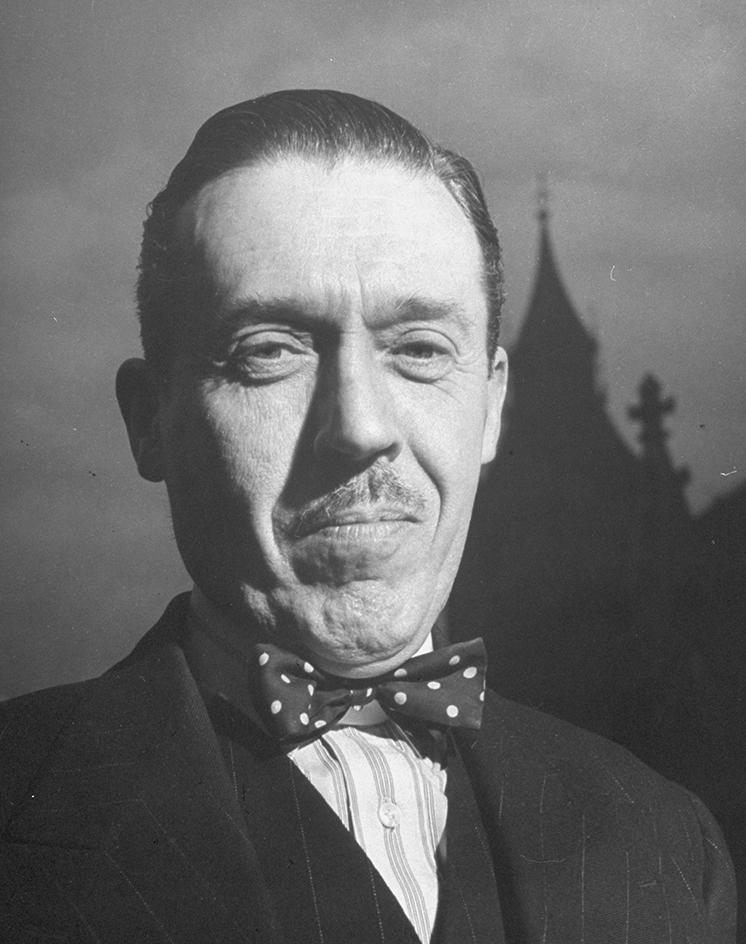McEwen, Sir John (1900-1980), served as temporary prime minister of Australia for about three weeks, from December 1967 to January 1968. He held office after Prime Minister Harold E. Holt disappeared while swimming. McEwen led the Country Party (now the National Party), a conservative party that represented the interests of rural Australians.

Although McEwen was prime minister for just a short time, he had a long career in government. He spent more than 36 years in the federal Parliament. He held Cabinet positions under five prime ministers—Joseph A. Lyons, Robert Gordon Menzies, Arthur Fadden, Harold E. Holt, and John Grey Gorton. McEwen held the post of deputy prime minister for 12 years, from 1958 to 1967 and from 1968 to 1971. As deputy prime minister, he served as acting prime minister many times when the prime minister traveled overseas.
Early years
Boyhood.
John McEwen was born in Chiltern, Victoria, Australia, on March 29, 1900. His parents were David James McEwen, an Irish-born pharmacist, and Amy Ellen Porter McEwen, who was born in Australia. John’s mother died in 1901 and his father in 1907. John’s grandmother raised him. The boy left school at the age of 13, and he went to work for a drug company to help support his younger sister and himself. At 16, he became a junior clerk in the Crown Solicitor’s Office of Victoria. The office provided legal service to the state government.
When McEwen was 18 years old, he enlisted in the Australian Imperial Force, the overseas force of the Australian Army during World War I (1914-1918). The war ended, however, before he finished his training. His military service qualified him for a loan from the state of Victoria to buy a farm. He started a dairy farm at Stanhope, Victoria, near Shepparton.
Marriage.
On Sept. 21, 1921, McEwen married Anne Mills McLeod. The couple had no children. They worked together to buy more land and developed their farm into a successful enterprise. They eventually owned about 3,000 acres (1,200 hectares). The couple switched from raising dairy cattle to raising sheep and later beef cattle.
Political career
Entry into politics.
As a farm couple, the McEwens became active in farmers’ organizations and in the Country Party. In September 1934, John McEwen was elected to the House of Representatives, the lower house of Australia’s Parliament. He represented the electoral district of Echuca, in Victoria. After the district of Echuca was abolished in 1937, he switched to the district of Indi. In 1949, the government again revised the electoral boundaries. McEwen then became the representative for Murray, a new division created within his former district of Indi.
Cabinet minister.
From 1937 to 1939, under Prime Minister Lyons, McEwen served as minister for the interior. In 1940, he became minister for external affairs under Prime Minister Menzies. In 1940 and 1941, during World War II, McEwen was minister for air and civil aviation under Menzies and Fadden. From 1940 to 1945, McEwen served on the Advisory War Council. The council consisted of senior government officials who advised the prime minister on the war effort. In 1943, the Country Party elected McEwen as its deputy leader.
After the war, McEwen served as minister for commerce and agriculture from 1949 to 1956, minister for trade from 1956 to 1963, and minister for trade and industry from 1963 to 1971. He held these offices under Menzies, Holt, and Gorton. As minister for trade and industry, McEwen promoted a policy that came to be called McEwenism. It involved putting high tariffs (taxes) on imported manufactured goods to protect Australian industry from foreign competition. In return, industrial leaders were expected to accept high tariffs on imported raw materials, which benefited farmers but pushed up industry’s costs.
In March 1958, Arthur Fadden retired as leader of the Country Party, and McEwen succeeded him as the party’s head. At the same time, McEwen also became deputy prime minister of Australia. He held the post until February 1971, except for his three weeks as prime minister.
By 1966, McEwen ranked as the longest-serving member of the Cabinet. In 1966, Queen Elizabeth II of the United Kingdom honored Anne McEwen for her public service by making her a Dame Commander of the Order of the British Empire. Anne, who had been ill for many years, died on Feb. 10, 1967.
Prime minister.
In December 1967, Prime Minister Holt, of the Liberal Party, disappeared while swimming near Melbourne. He was presumed drowned. McEwen took office as prime minister on Dec. 19, 1967, with the understanding that he would serve only until the Liberal Party elected a new leader. John Grey Gorton of the Liberal Party replaced McEwen as prime minister on Jan. 10, 1968. Parliament did not meet during McEwen’s time in office.
At the age of 67, McEwen was the oldest person ever appointed prime minister of Australia. However, he was not the oldest to serve. Prime Minister Robert Gordon Menzies reached the age of 71 while in office.
Later years
On July 26, 1968, McEwen married Mary Eileen Byrne, his secretary. She was 22 years younger than he. In February 1971, McEwen retired from Parliament. He had served 36 years 5 months in government. After he retired, Queen Elizabeth II made him a Knight Grand Cross of the Order of St. Michael and St. George. He became known as Sir John McEwen. Sir John died in Melbourne on Nov. 20, 1980.
